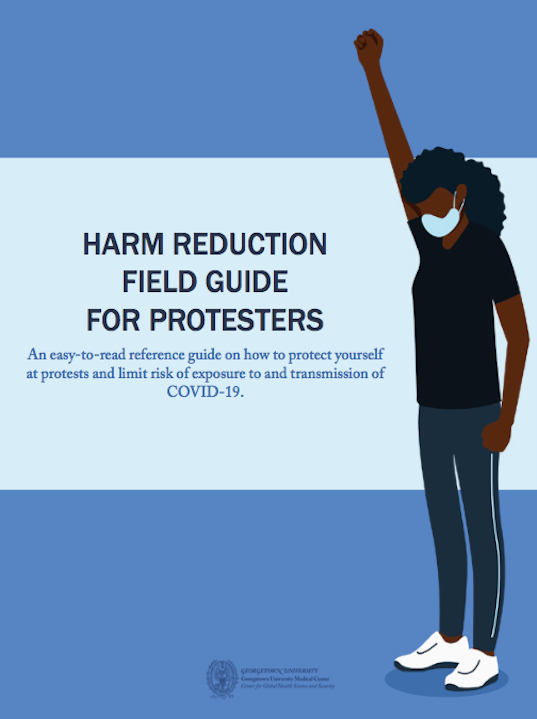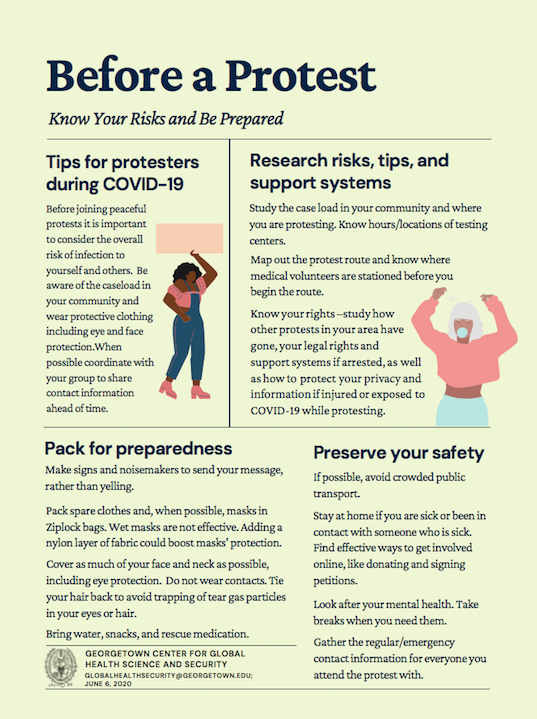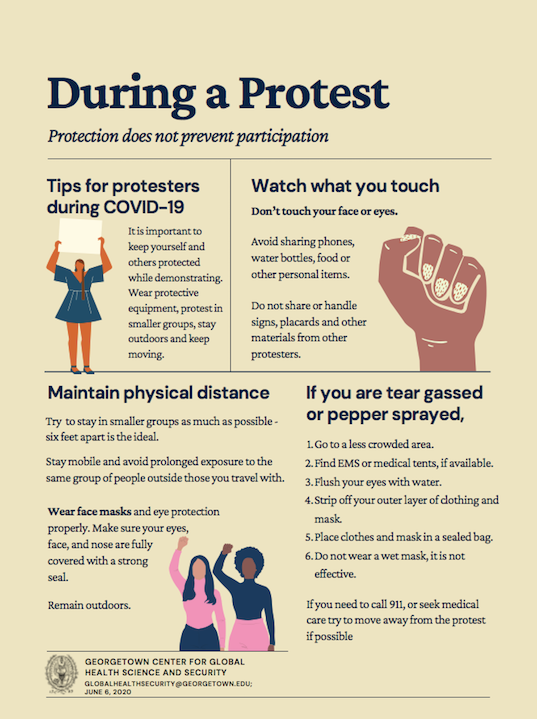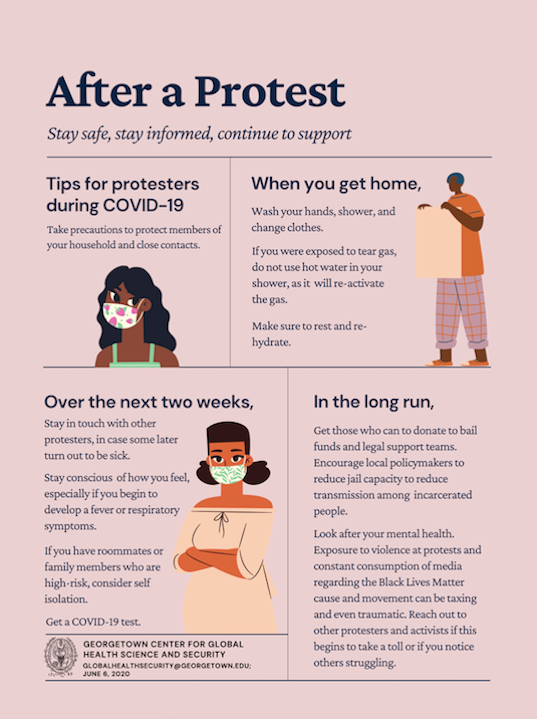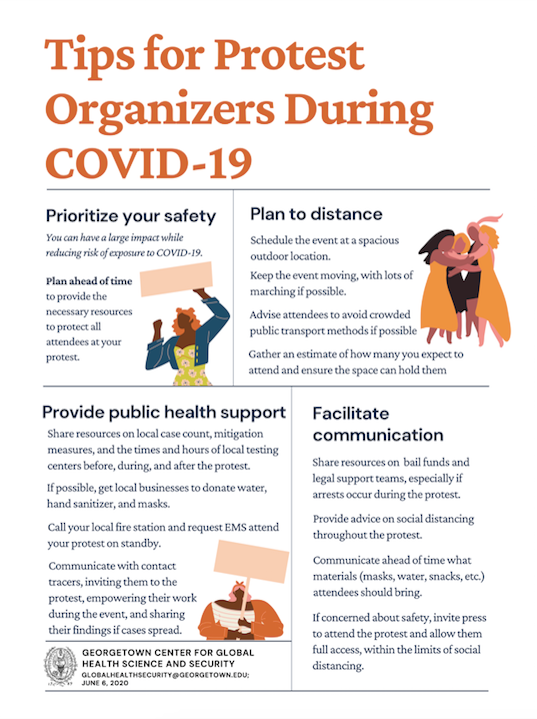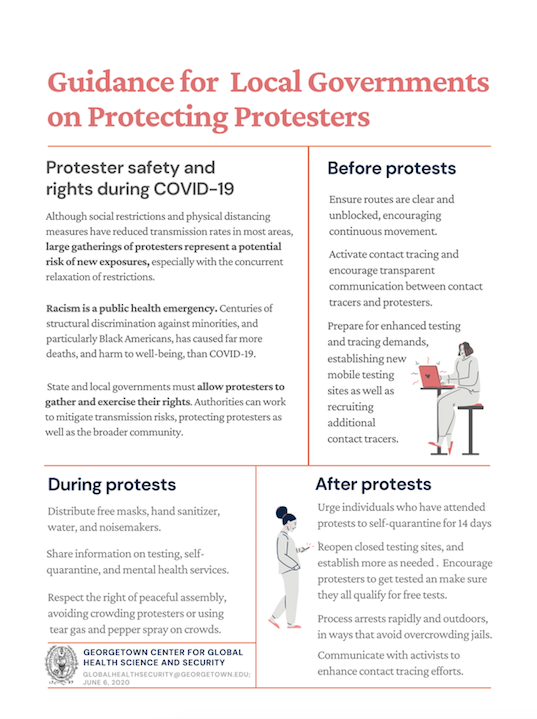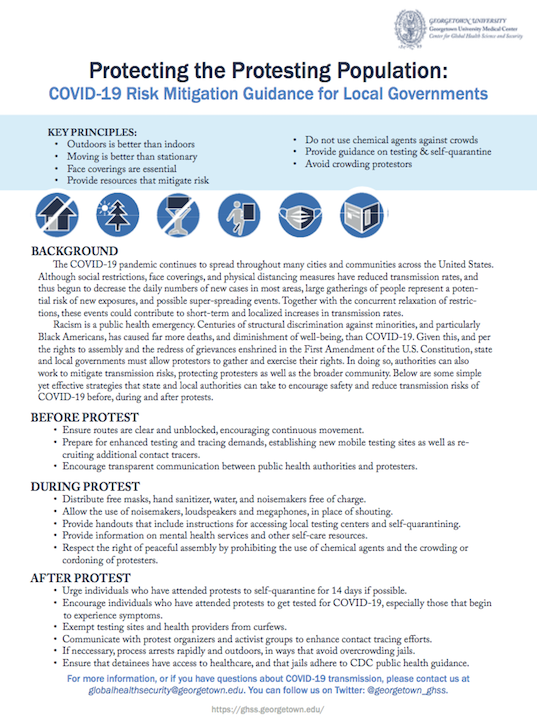Guidance on COVID-19 and Protests
As protests against racial injustice continue around the United States and around the world, we encourage governments, organizers, and individuals to proactively take steps to minimize the risk of COVID-19. At a minimum, this includes wearing a mask, maintaining distancing measures when possible, and getting tested if you think you’ve been exposed. Local governments should also take evidence-based actions to mitigate the risk of COVID-19. For more information on public health measures to reduce COVID-19 transmission, or if you have other questions, please contact us.
Guidance
Infographics
Testing Information
The District of Columbia offers public, private, and member specific COVID-19 testing sites. Free drive-thru (appointment required) and walk-up (no appointment required) testing is offered at several locations, including at firehouses on select days. For more info on DC’s coronavirus testing, click here.
The Commonwealth of Virginia offers COVID-19 testing doctor’s offices, urgent care centers, pharmacies, and other healthcare clinics. Some testing sites in Virginia are offering community testing events, such as drive-thru testing. Individuals are encouraged to contact their physicians if they have symptoms and want to be tested for COVID-19. For more info on Virginia’s coronavirus testing, click here.
The State of Maryland offers COVID-19 testing for Maryland residents with a valid ID (driver’s license, U.S. passport, Social Security card). Individuals are encouraged to contact the site where they plan to be tested to learn about that site’s appointment procedures and other specific requirements. For more info on Maryland’s coronavirus testing, click here.



